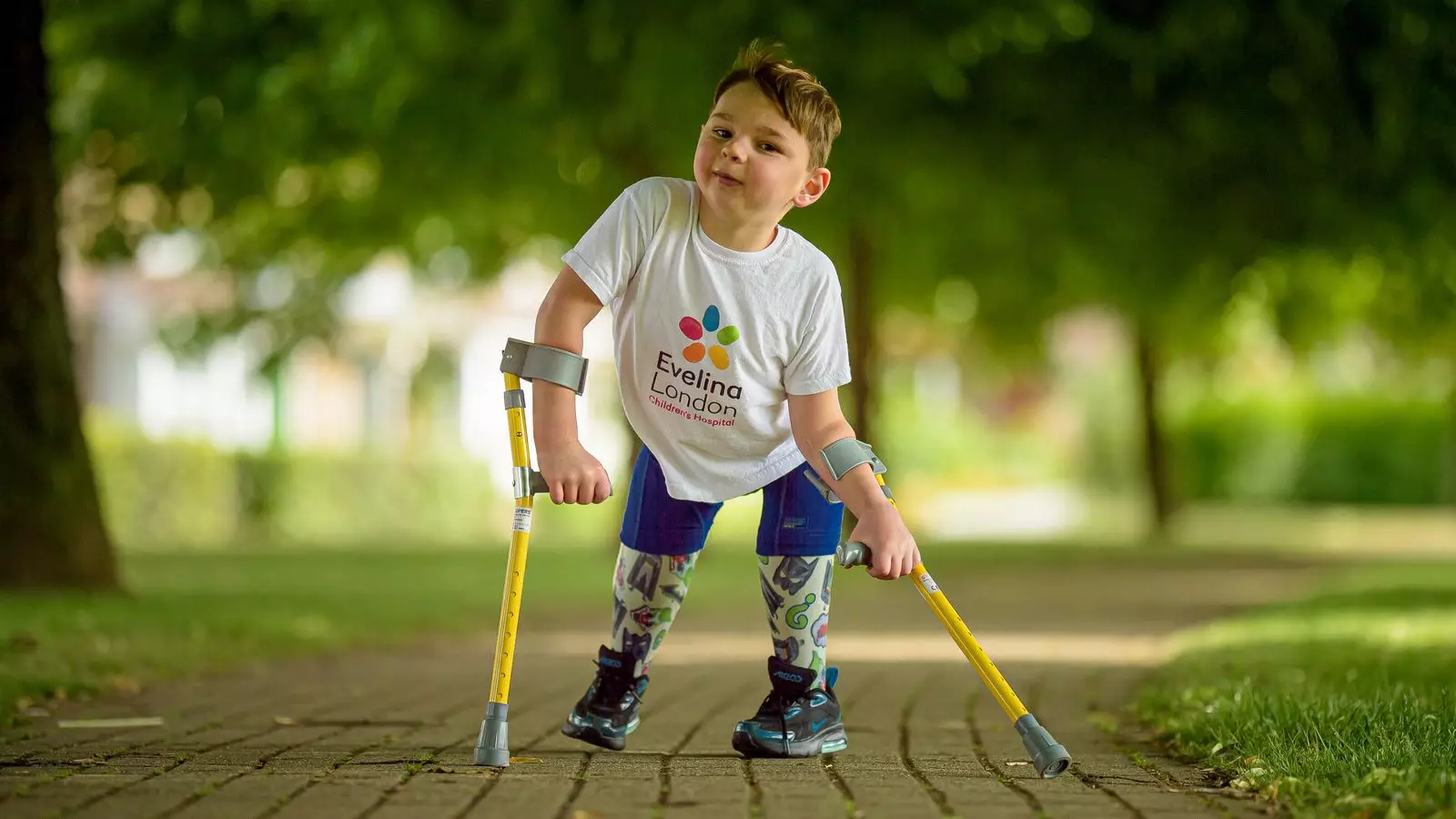In a disheartening turn of events, the early release of Jody Simpson, a convicted child abuser, showcases a disturbing trend within our judicial system that all too often seems to favor the offenders over the victims. Simpson, along with Anthony Smith, tortured her own son, Tony Hudgell, to the brink of death when he was merely a 41-day-old infant. This grotesque abuse led to life-altering consequences: the amputation of Tony’s legs due to severe injuries inflicted upon him. Their case should have served as a precedent for the implementation of stricter penalties for those who commit such heinous acts—but instead, it has underscored systemic failures to protect vulnerable children in our society.
A Case of Honest Outrage
The national outcry surrounding Tony’s plight resonated with advocates for child welfare, pushing for what has come to be known as “Tony’s Law.” This law aims to impose life sentences on offenders who inflict permanent harm on children. The public’s reaction to Simpson’s impending release demonstrates an essential truth: society is increasingly fed up with culpable leniency towards abusers. It’s ironic that while Tony lives with lifelong injuries that serve as brutal reminders of his mother’s cruelty, she is granted an opportunity to re-enter society. The narrative is not simply one of a transformative path towards rehabilitation; it is rather one of a system that appears to lack empathy for the genuine suffering of survivors like Tony.
Reflections on Justice and Accountability
Critics, including Tony’s adoptive mother, Paula Hudgell, have voiced their discontent over the Parole Board’s decision to grant Simpson an early release. Her emotional declarations on social media reflect not only her grief for Tony but also a broader disillusionment with justice. As painful as it is to acknowledge, the system often prioritizes the rehabilitation of offenders at the expense of justice for victims. In this scenario, where Tony’s existence is marred by trauma, releasing his abuser seems to add insult to injury.
The Parole Board claims that their decisions focus on evaluating the risk a prisoner poses to society upon release. However, this rationale often overlooks the psychological and emotional damage done to victims and their families. What becomes evident here is a discrepancy in the standards of accountability—we must ask ourselves: whose lives are valued most in the eyes of judicial reform? The evidence suggests that the scales of justice may be tipped alarmingly towards the perpetrators.
A Society Grappling with Its Morality
In a just society, individuals who commit such monstrous acts against children would face consequences befitting their crimes. Unfortunately, Simpson’s release casts a long shadow over the basic tenets of morality. It forces us to ponder why certain individuals are allowed back into a community where they can potentially cause further harm. The decision echoes the unsettling reality that our legal framework may still require significant reform to safeguard against repeat offenders and to honor the dignity of victims like Tony.
As citizens, we must wrestle with the uncomfortable truth presented by such incidents. Can we, as a society, continue to tolerate a system that seems to weigh the worth of a child’s pain against the potential for a criminal’s redemption? The answer must be a resounding no. It is imperative that actions translate into change—not only for the sake of justice but for a collective moral accountability that reflects our values as a society.
A Call to Action
The impending release of Jody Simpson underscores the urgent need for comprehensive reform in how we address child abuse cases. It is time to reevaluate our legal systems to prioritize child welfare over misguided leniency towards perpetrators. The possibility of justice being subverted should ignite a fierce dialogue among lawmakers, advocates, and the wider public, demanding robust legislative action to prevent future tragedies like Tony’s. The focus must remain firmly on protecting the most vulnerable members of our society, ensuring that their voices are heard, and their stories serve as catalysts for genuine reform. Only through this lens can we hope to cultivate a future where children are truly safe from the evils borne of abuse.

